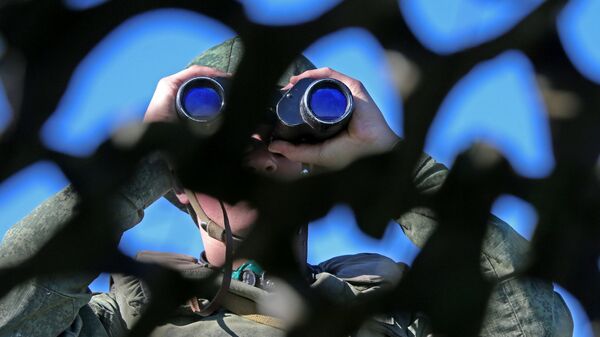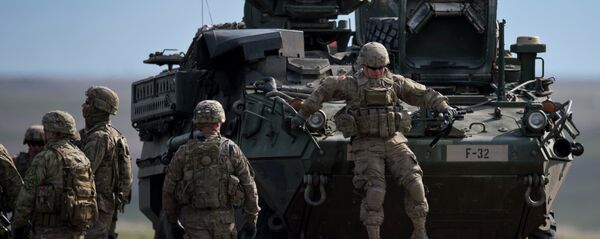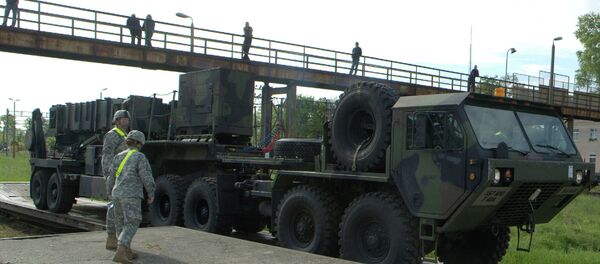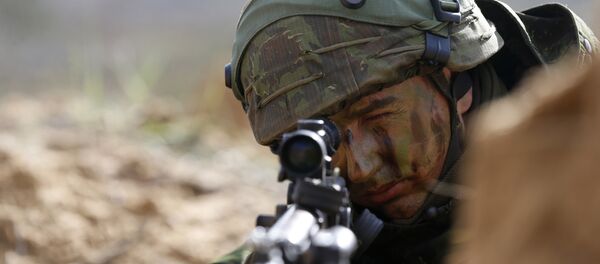The article, entitled 'Meet the New Fulda Gap?', asks whether a narrow strip of land connecting Poland with Lithuania could become a 'Suwalki Gap' (named after a local town in the area between Kaliningrad and northwestern Belarus, Russia's ostensible ally against NATO).
Apparently, this "small vulnerable land bridge" corridor separating Kaliningrad from Belarus is now being monitored closely by United States Army Europe (USAREUR) Commander LtGen Ben Hodges, to the point where it is becoming, in McLeary's words, "the latest potential flashpoint between an increasingly aggressive Moscow and NATO."
"If the Russians did a snap exercise [near the gap] you could see, potentially, they could close that off," Hodges said, cited by McLeary.
Pointing ambiguously to "an increasingly assertive Russia making land grabs in Ukraine [where?] and on the Black Sea [what?]" and to "menacing overflights of the Baltic Sea," the journalist emphasizes that "for Western military planners, ensuring access to the three Baltic states inside NATO is fundamental to any forward response to Russian aggression."
Subsequently, the journalist warns that "if Russia managed to storm the Suwalki Gap, it would sever the only land link between Latvia, Lithuania, Estonia and the West." Once that happened NATO, according to McLeary, would have a very hard time reaching the Baltics by air or by sea, given that Russia has "taken great pains to dominate" both approaches through "advanced anti-aircraft batteries," along with a 50-ship Russian Baltic Fleet and several brigades of infantry in Kaliningrad.
"It's a very, very well-protected, heavily armed location that could deny access in the Baltic Sea, should they choose to do so," Hodges noted.
So far so good, except neither the US Army commander nor McLeary bother to address the 800-pound elephant in the room about why in the world Russia would make a decision to launch an invasion of Poland, a member of NATO, presumably followed by attacks on three more NATO members, which would most certainly lead to an all out war.
Other experts cited by McLeary seemed to emphasize their lack of self-assuredness in speaking about the 'Russian threat' in this 'new Fulda', Atlantic Council senior fellow Jorge Benitez noting that the area is "one of the most militarized regions in all Europe," before quickly adding "by that I don't mean NATO has invested in it. It's Russia."
But it's not Russia that's been moving its military toward NATO's 1991 borders for the last quarter century after promising it wouldn't. Taking that simple fact into account, the rest of the article's arguments about the imminent Russian invasion become rather moot.
Frankly, it's not Russia's fault or concern that "US and NATO commanders are grappling with their own 'anti-access/area denial' nightmare" along the 'Suwalki Gap'. It would be more surprising, with Russia having awakened from its 90's-era stupor of offering never-ending concessions to NATO, to see Moscow respond in any other way. Where is Russia supposed to base its Baltic Sea Fleet, its S-300 missile systems, its air force and its Kaliningrad troops? In Siberia? On the moon?
"The geography of NATO has changed. In the Cold War NATO's borders were in the center of the continent, but now the front lines are the Baltics," Benitez noted. However, true to the hypocritical manner of thinking which seems so pervasive among US strategists and military planners, Benitez added that it is again "the Russians [who] have chosen to make this the new zone of friction."
Sure, new "zones of friction" exist, but perhaps these planners and strategists should take some time out from their planning to consider how their Russian counterparts, hardened by two decades of seeing their former Cold War enemies march relentlessly toward their borders, might look at the situation.






